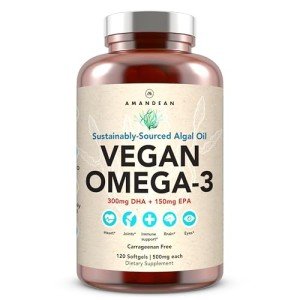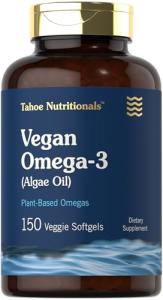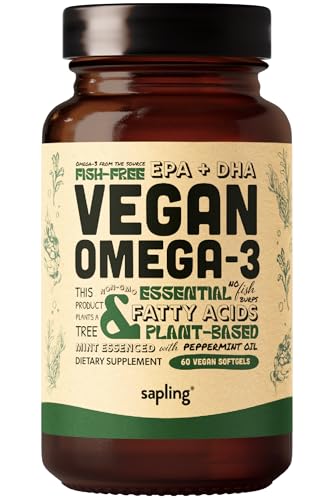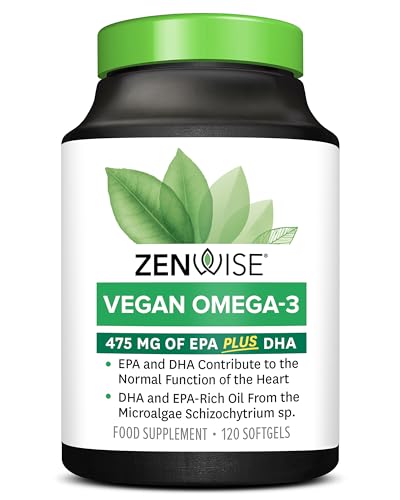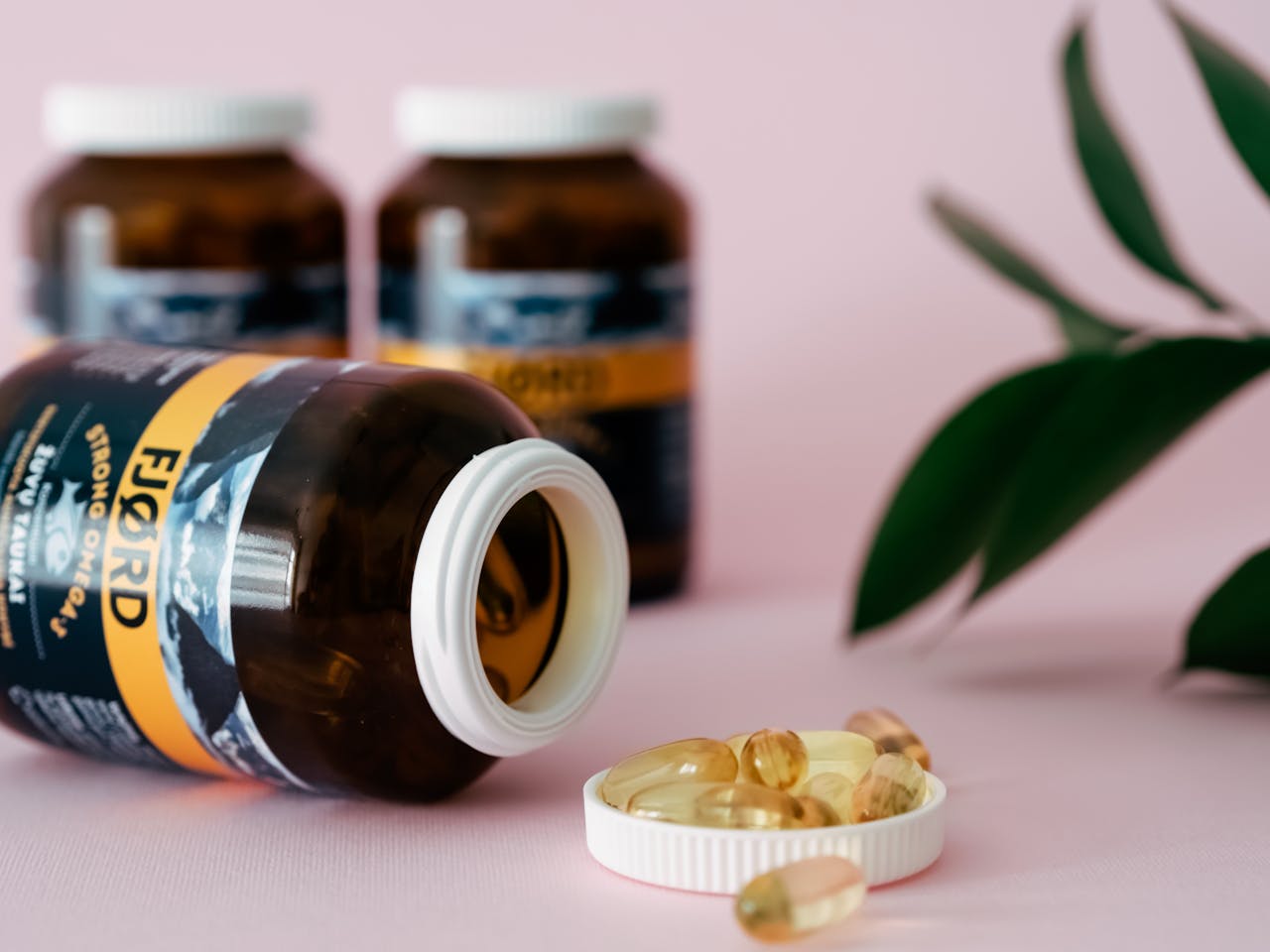When exploring the question of whether is vegan omega 3 as good as fish, it's essential to first understand the sources of omega-3 fatty acids. Omega-3s are essential fats that our bodies cannot produce on their own, meaning they must be obtained through our diet. The two main types of omega-3 fatty acids are EPA and DHA, which are primarily found in fish and other seafood. However, plant-based sources mainly offer ALA, which our bodies can convert to EPA and DHA, albeit at a lower efficiency.
Common sources of vegan omega-3 include flaxseeds, chia seeds, walnuts, and hemp seeds. Flaxseed oil is particularly popular as it is rich in ALA and can easily be added to smoothies, salad dressings, and baked goods. Similarly, chia seeds are versatile and can be sprinkled on yogurt or mixed into oatmeal. Incorporating these foods into your daily diet can help you achieve an adequate intake of omega-3s on a vegan diet.
It’s also important to note that some vegan omega-3 supplements are available on the market, derived from algae. Algal oil supplements provide both EPA and DHA, making them a suitable alternative for those who are not consuming fish. This raises the question of whether is vegan omega 3 as good as fish? While they might differ in their bioavailability, many health experts agree that sufficient intake of omega-3 from vegan sources can still support heart and brain health effectively.
Benefits of Vegan Omega 3
When considering the question, "is vegan omega 3 as good as fish?", it's important to explore the unique benefits of plant-based omega-3 sources. Vegan omega-3 primarily comes from algae, flaxseed, chia seeds, and walnuts. These sources provide essential fatty acids, particularly ALA (alpha-linolenic acid), which can help support heart health, improve brain function, and reduce inflammation in the body.
One of the standout benefits of vegan omega-3 is that it is free from the contaminants often found in fish, such as mercury and polychlorinated biphenyls (PCBs). Consuming fish can expose us to these harmful substances, which may pose risks to our health over time. By opting for vegan omega-3, you can ensure you’re getting the essential nutrients without the potential pollutants.
Another compelling argument for choosing vegan omega-3 is its sustainability. Overfishing has led to declines in fish populations and damaged ocean ecosystems. Algae and plant-based sources of omega-3 have a much lower environmental impact, making them a more sustainable choice. By incorporating vegan omega-3 into your diet, you are not only supporting your health but also acting in favor of the planet.
Additionally, vegan omega-3 sources are often rich in fiber and other nutrients, enhancing their overall health benefits. For instance, flaxseeds and chia seeds offer additional vitamins and minerals, making them a versatile addition to various dishes. This means that when you choose vegan omega-3, you're not only obtaining essential fatty acids but also a range of beneficial compounds for your overall well-being.
Comparing Fish and Plant Options
When discussing the question, "is vegan omega 3 as good as fish?", it's essential to explore the differences between fish-based Omega-3 and plant-based sources. Fish, especially fatty varieties like salmon and mackerel, is renowned for its high content of EPA and DHA, the two most beneficial forms of Omega-3. These types of Omega-3 are readily absorbed by the body, making fish a popular choice for those seeking to improve their heart and brain health.
On the other hand, plant-based sources such as flaxseeds, chia seeds, and walnuts primarily contain ALA (alpha-linolenic acid), which is a different form of Omega-3. While the body can convert ALA into EPA and DHA, this process is not highly efficient. Some studies suggest that only a small percentage of ALA is converted into the forms that provide the most health benefits. This raises the question: "is vegan omega 3 as good as fish" if the conversion rate is so low?
Moreover, the quality of Omega-3 varies widely between sources. Fish can also provide additional nutrients, such as vitamin D and protein, which may not be as abundant in plant options. However, for those following a vegan diet or looking to reduce their fish consumption, plant-based Omega-3 can still be a valuable part of their nutrition. Opting for fortified foods or omega-3 supplements derived from algae can also be an effective way to ensure adequate intake of EPA and DHA without consuming fish.
Ultimately, the choice between fish and plant options for Omega-3 may come down to personal preference, dietary restrictions, and health goals. Whether you're a firm believer in the power of fish or lean towards a vegan lifestyle, understanding the differences in nutrient profiles will help inform your decision. As the debate on "is vegan omega 3 as good as fish" continues, it's clear that both sources have their unique advantages and can play essential roles in a balanced diet.
Making the Right Choice for You
When it comes to choosing the right source of omega-3 fatty acids, many people find themselves asking, “is vegan omega 3 as good as fish?” This question is quite common, especially among those who follow a plant-based diet or are concerned about the environmental impacts of fishing. Understanding the differences and similarities between these sources is essential in making an informed decision that aligns with your values and nutritional needs.
Fish, particularly oily types like salmon and mackerel, are well-known for their high DHA and EPA content, the two most beneficial forms of omega-3. These are crucial for heart health, brain function, and reducing inflammation. However, for those who prefer a vegan lifestyle, algae-based supplements provide a fantastic alternative. Algae is the original source of omega-3 for fish, meaning that when you consume algae oil, you are getting similar nutritional benefits without the drawbacks associated with fish.
If you are considering whether is vegan omega 3 as good as fish, it’s important to compare nutritional profiles. While fish provides a natural combination of both DHA and EPA, many vegan omega-3 sources focus primarily on DHA. That being said, studies indicate that taking algae-based supplements can be just as effective for most people in meeting their dietary omega-3 needs. Additionally, vegan options can be easier on the digestive system for some individuals and free from contaminants often found in fish.
Your personal health goals, dietary restrictions, and ethical considerations will ultimately guide your choice. If you are looking to reduce your carbon footprint and avoid overfishing issues, then a vegan omega-3 supplement may be the perfect fit for you. On the other hand, if you enjoy fish and it fits your dietary ethos, then incorporating it into your diet can also be beneficial. Understanding the nuances of each option will help you determine whether is vegan omega 3 as good as fish for your unique situation.
